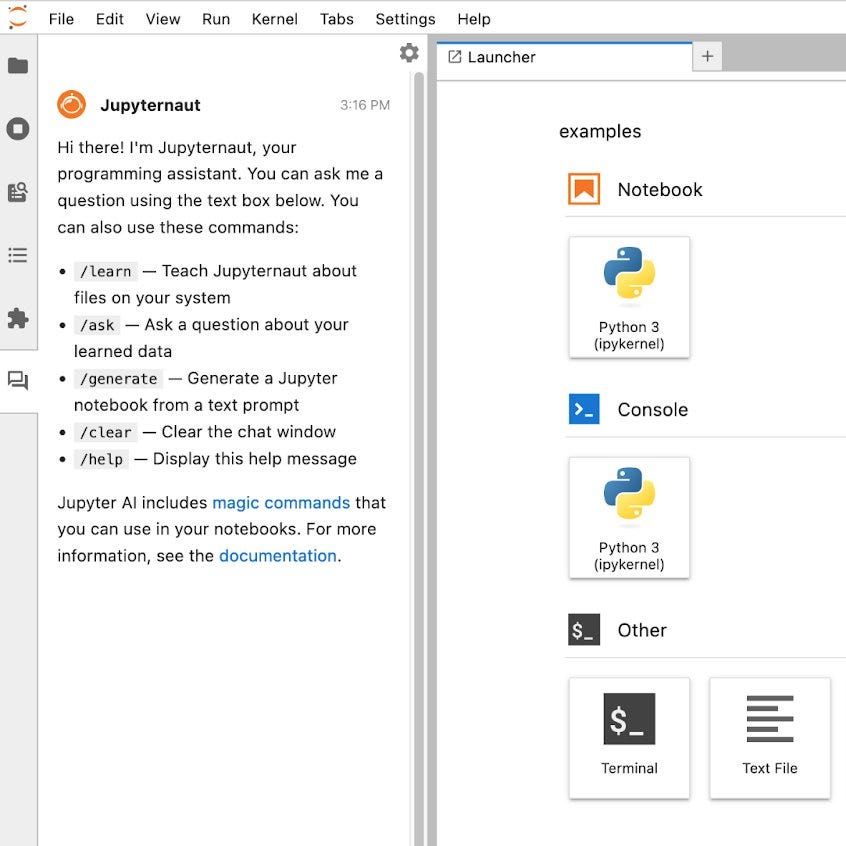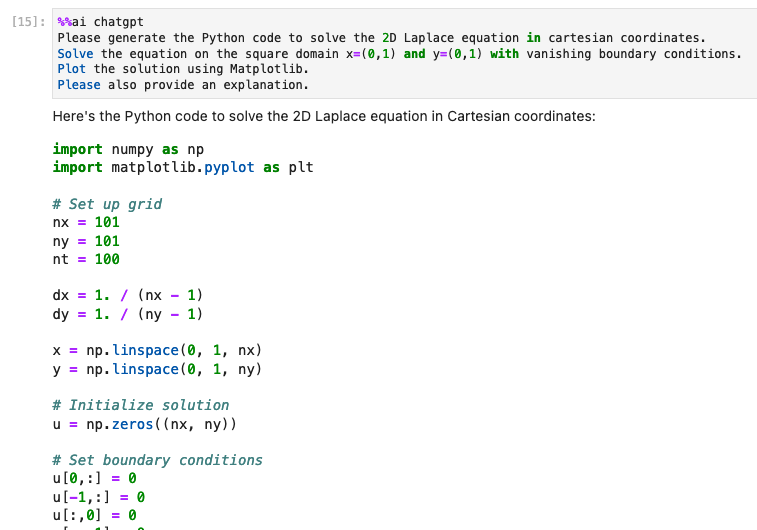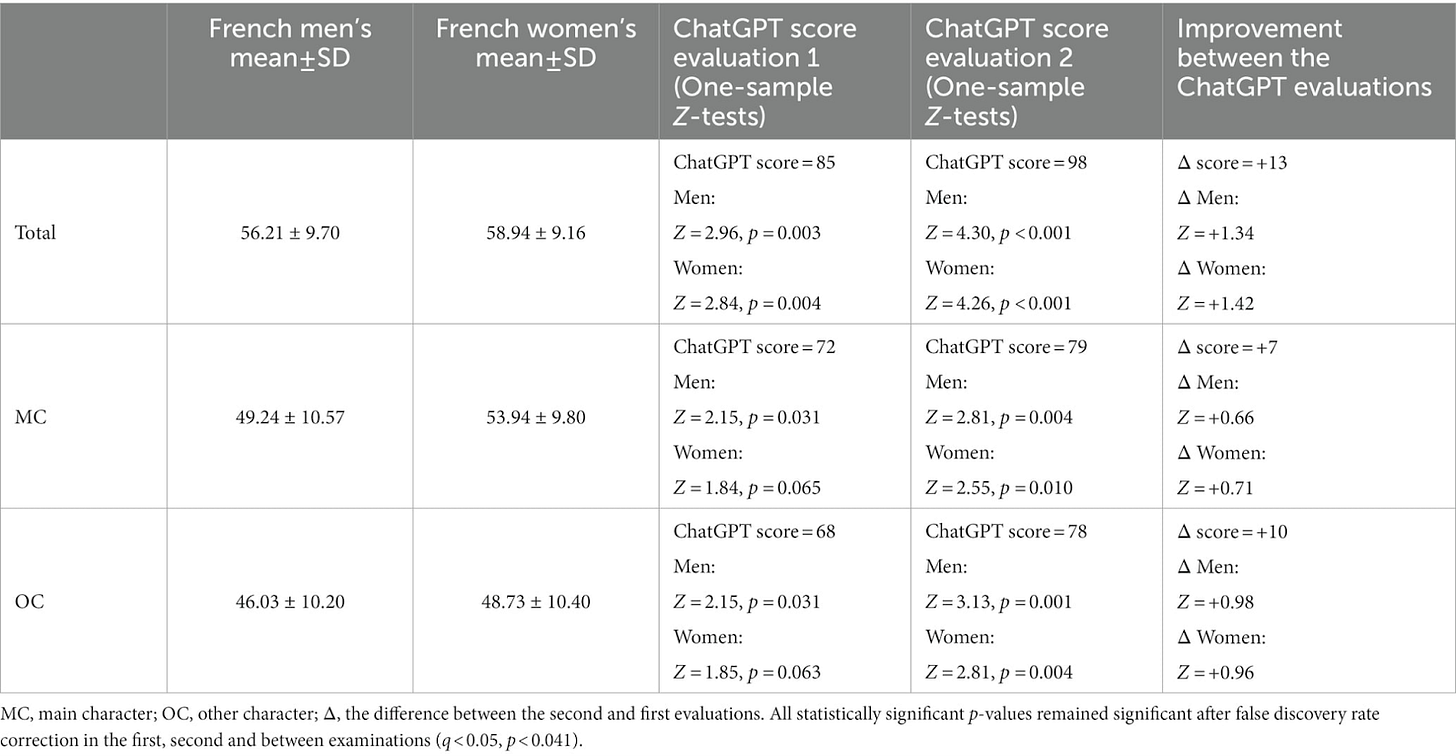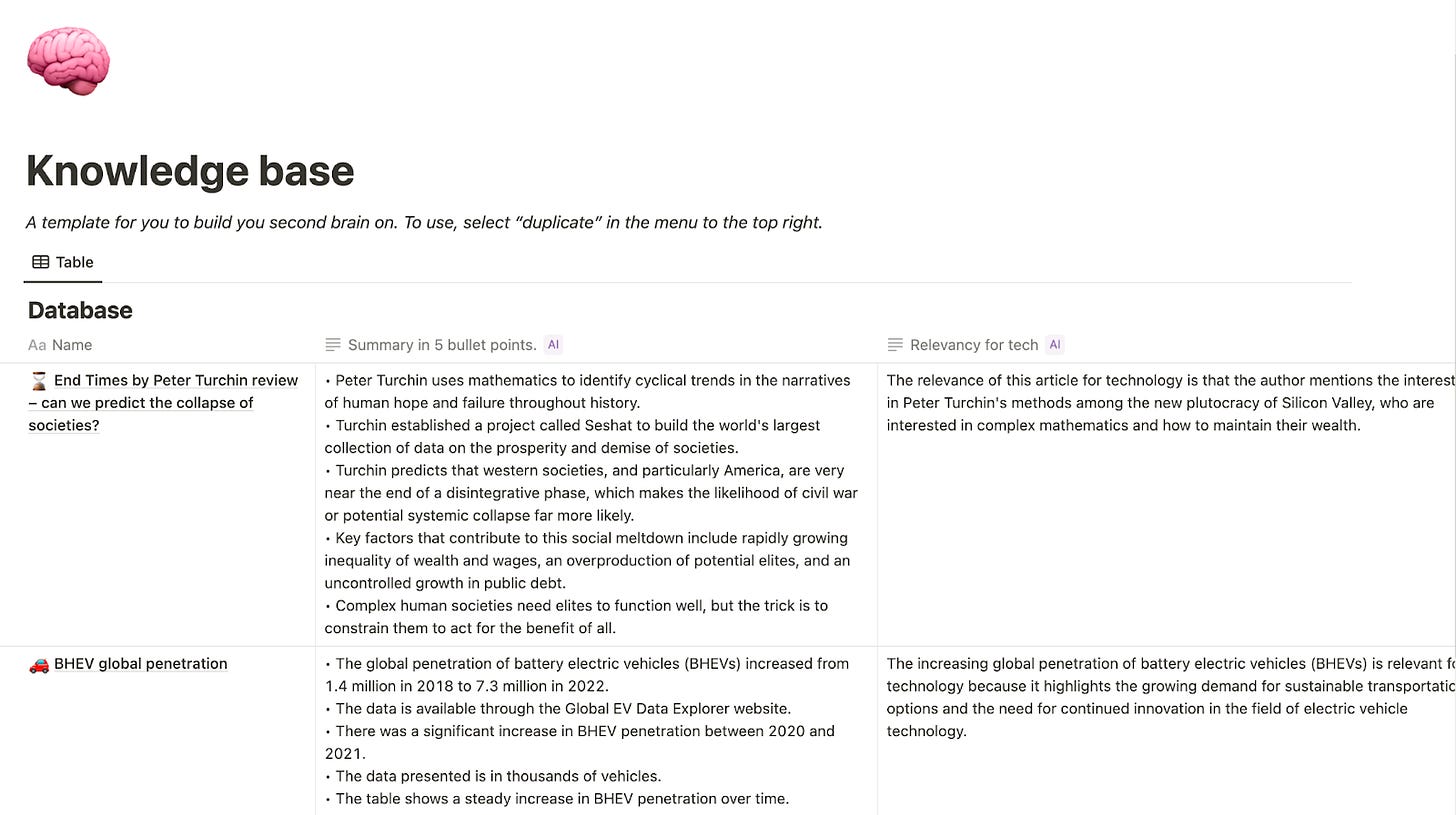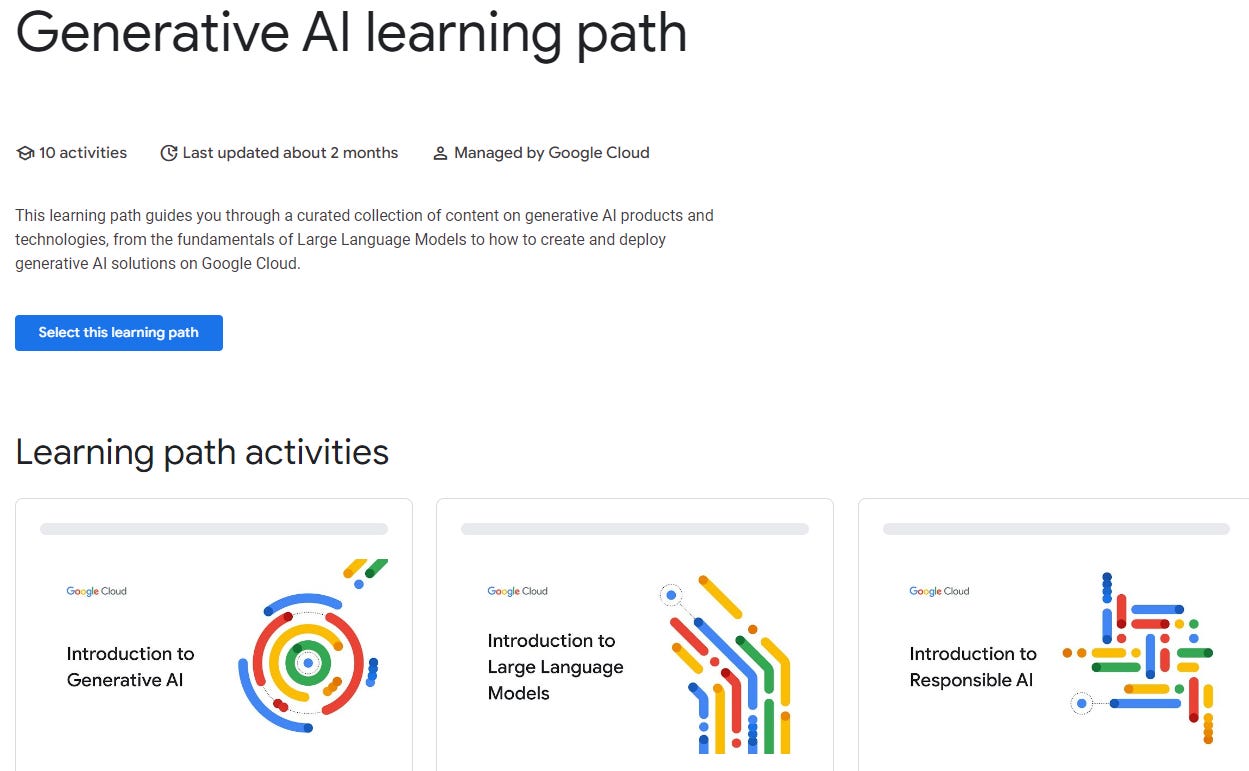Apple bets big on AI 🍎💰
Plus: Jupyter brings AI to notebooks. ChatGPT’s emotional awareness is more than humans.
Hello Engineering Leaders and AI Enthusiasts!
Welcome to the 79th edition of The AI Edge newsletter. This edition brings you ‘ Apple bets big on AI.’
And a huge shoutout to our incredible readers. You all rock! 😊
In today’s edition:
🍎 Apple bets big on AI
and 👏📓Jupyter brings AI to notebooks
😮 ChatGPT’s emotional awareness is more than humans'. What?
🧠 Knowledge Nugget: Promptpack - How to build a second-brain (featuring AI) by
Let’s go!
Apple bets big on AI
Apple’s CEO Tim Cook has stated that AI and ML are embedded in every company product. This comes after concerns were raised about Apple's lack of discussion on its AI plans while competitors have been actively incorporating the technology into their products. He also emphasized that AI is central to the design of Apple's products, contradicting suggestions that the company has not yet integrated the technology.
Cook reassured that Apple has invested in AI for years, and this year’s Research & Development spending has hit $22.61 billion. They are also hiring dozens of AI jobs in the US, France, and China, looking to fill roles that could help build Gen AI tools.
Why does this matter?
This move signifies the potential for enhanced personalization and contextual relevance in user interactions, leading to a more intuitive and tailored experience within the Apple ecosystem. The seamless integration of AI may also pave the way for groundbreaking applications in health, home automation, and more. Ultimately redefining how users interact with and benefit from Apple's ecosystem of products and services.
Jupyter brings AI to notebooks
Jupyter AI is a tool that brings generative AI to Jupyter notebooks, allowing users to explore and work with AI models. It offers an %%ai magic command that turns the notebook into a reproducible generative AI playground, a native chat UI for working with generative AI as a conversational assistant, and support for various generative model providers.
Jupyter AI is compatible with JupyterLab, with version 1.x supporting JupyterLab 3.x, and version 2.x supporting JupyterLab 4.x. The main branch of Jupyter AI focuses on the newest supported version of JupyterLab, with features and bug fixes backported to JupyterLab 3 if deemed valuable.
(official announcement)
(GitHub)
(Here is an example of how to use ChatGPT to generate working code within the notebook cells.)
Why does this matter?
Integrating advanced AI chat-based assistance directly into Jupyter's environment may improve coding, summarization, error correction, and content generation tasks. And with support for leading LLMs like OpenAI, AI21, Anthropic, Cohere, and even local models, JupyterAI empowers users with a powerful toolset to streamline coding workflows and obtain accurate answers.
ChatGPT’s emotional awareness is more than humans'. What?
A study found that ChatGPT has higher emotional awareness than humans. The machine was subjected to a standardized test measuring human emotional awareness and scored significantly higher. The test required participants to show empathy in fictional scenarios.
ChatGPT outperformed humans in all categories, achieving an overall score of 85 compared to 56 for men and 59 for women. The researchers suggest that ChatGPT could be helpful in psychotherapy, cognitive training, and diagnosing mental illness. Previous studies have shown that people perceive ChatGPT's responses as more empathetic than medical professionals.
Why does this matter?
This upgrade underscores AI's ability to comprehend emotions and could help with therapy, mental health diagnosis, and making healthcare interactions more empathetic. This shows how AI can learn emotions and improve how it interacts with people.
Knowledge Nugget: Promptpack: How to build a second-brain (featuring AI)
This Promptpack by
and explores how to build a second brain using AI-powered tools. It discusses the use of knowledge bases and the role of generative AI in research and knowledge processing. The author shares their experience using Notion as a smart knowledge repository and tools like Perplexity and Elicit to enhance search capabilities.They also highlight ChatGPT as their favorite AI tool. The article emphasizes the importance of natural language processing and reasoning in the evolving data and knowledge management landscape.
Why does this matter?
This article explores how AI tools like Notion, Perplexity, and ChatGPT enhance knowledge management and research. Also highlights how these tools facilitate efficient information gathering, processing, and storage, emphasizing their relevance in leveraging natural language as a primary interface for data-driven reasoning.
What Else Is Happening❗
💻 Azure ChatGPT supporting GPT-4 is launched! (Link)
🌟 Salesforce introduces Einstein Studio to train AI models using Data Cloud. (Link)
🍔 White Castle wants to roll out AI-enabled voices to over 100 drive-thrus. (Link)
🎤 Rapper Lupe Fiasco collabs with Google for the launch of AI Tool TextFX! (Link)
🔍 Zoom's new terms of service allow AI training on user content, no opt-out. (Link)
🛠️ Trending Tools
Chckr: Instant essay score, feedback & improvement instructions using AI & college advising expertise.
Qriginals: AI-driven QR code generator with a community focus. Share, view, appreciate & utilize designs.
Creative magic panel: Supercharge creativity with 281+ features, AI editing & unlimited photo edits in Photoshop.
Chatlingo: Learn languages through immersion & conversations with AI personas who respond like real friends.
MindfulData AI: Add Google Search to ChatGPT using the MindfulDataAI Plugin.
AI Speech Therapist - Jessica: Jessica, your speech superhero with AI, LLMs & speech recognition. 24/7 availability, custom avatars & affordable.
Ailora AI: All your AI needs are covered under one user-friendly dashboard. Text, Assistant, Voice-Speech, Images & Code Generation.
OnePromptADay: Newsletter sending 1 AI prompt a day. Get better at writing AI prompts for chatGPT, mid-journey, runway ML & more.
🧐 Monday Musings: Google Cloud Skills Boost
The "Google Cloud Skills Boost" is a learning path that helps individuals enhance their skills in generative AI products and technologies. It covers everything from the basics of Large Language Models to creating and deploying generative AI solutions on Google Cloud.
This curated collection of content provides a comprehensive understanding of generative AI and equips learners with the knowledge to apply it effectively whether a beginner or an experienced professional, this learning path offers valuable insights and practical guidance to boost your skills in this field.
Check out this learning path that unveils the untapped potential of generative AI in real-world applications! 🔥📚
That's all for now!
If you are new to ‘The AI Edge’ newsletter. Subscribe to receive the ‘Ultimate AI tools and ChatGPT Prompt guide’ specifically designed for Engineering Leaders and AI Enthusiasts.
Thanks for reading, and see you tomorrow. 😊




